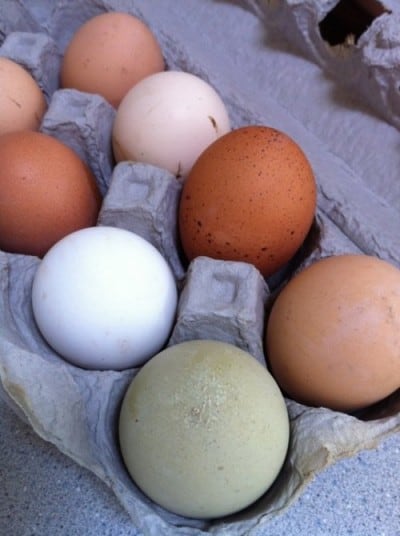
I'm so used to buying organic, cage free, I mean, free-roaming, no, "happy" eggs that I don't even flinch, or pay attention to, at the $4/dozen prices. The chickens supposedly roam the farm, without being caged, and eat organic feeds. I buy the same eggs from either at the farmers market ($4/dz) or from Whole Foods ($3.99 to $4.99). But the other day, I ran out of eggs but didn't want to drive to Whole Foods so I went to a local supermarket. I stared at the huge egg section and got lost. The prices and the variety of eggs just got me so confused. I thought there were just 'caged' or 'cage free' and 'organic' or 'conventional'.
But no. There were: cage-free, free-roaming, pasture, organic, omega-3, free-range, vitamin added, and farm-raised. Arggghhhhh.....and all the different prices!! (And why should my life be easy?) I just picked up a half dozen organic eggs ($3.99/half dz) and drove home, shaking my head in disbelief that buying eggs was this difficult. And expensive!
So, to figure out what all those labels meant, I did some research and found out that eggs are not as simple as they look. According to U.S. Department of Agriculture, Cooperative Extension Service, University of Florida, there are two main categories - Designer and Specialty - and while most common eggs in the US are white eggs from the While Leghorns, there are myriad of different ways to raise or feed the animals, resulting in all those confusing varieties.
Here are what those terms mean:
DESIGNER EGGS: to put it simply, these are eggs the content has been modified from the standard egg. You may not see some of these on your store shelves but they do exist.
Vitamin content: Currently, vitamins, A and E, are receiving the most interest as components of designer eggs. The vitamin content of the egg is variable because the hen absorb different vitamins into the egg with different efficiency. So although, the hens were fed with vitamins, and the label might indicate vitamin contents, there is no guarantee that the eggs actually contain those vitamins.
Lowered cholesterol: In order for a company to claim a reduce amount of a nutrient the product must have 25 percent less than the normal product standards for that nutrient. A large egg contains approximately 200 - 220 mg of cholesterol. Egg cholesterol is found only in the yolk. By genetics, some chickens lay smaller yolked eggs so naturally, those eggs contain lower cholesterol. But there are artificial ways to lower cholesterol in the eggs and that's by diet and pharmacological intervention (drugs). Drugs have been successful in lowering egg cholesterol by as much as 50% but those drugs are not yet approved by the FDA for commercial use. Chromium supplementation to laying hen diets at concentrations of less than 1 ppm have been shown to lower egg cholesterol and also improve egg interior quality. But the researches have shown that most effective way to lower cholesterol content is by feeding a special all-vegetarian diet that is higher in protein and fiber, and enriched in vitamin E.
Fat and fatty acid content: Altering the total fat content in the diet of the hen has little effect on the total fat content of the egg yolk. However, the fatty acid profile (or the ratios of the different types of fatty acids) of egg yolk lipid can easily be changed, simply by changing the type of fat used in the diet. Different feeds, such as flax seed (linseed), safflower oil, perilla oils3, chia4, marine algae, fish, fish oil, and vegetable oil have been added to chicken feeds to increase the omega-3 fatty acid content in the egg yolk. They typically have a darker yellow yolk. Canola oil is commonly used to alter the ratio of saturated to unsaturated fatty acids.
Pharmaceuticals: New biotechnology is being used to develop genetically modified chickens that produce compounds that can be harvested from the eggs. These compounds include insulin for the treatment of diabetes. The hen, like all animals, produces antibodies to neutralize the antigens (viruses, bacteria, etc.) to which she is exposed to each day. These antibodies circulate throughout her body and are transferred to her egg as protection to the developing chick. Immunologists are taking advantage of the fact that the hen can develop antibodies against a large array of antigens and concentrate them in the egg. Specific antigens are now being selected and injected into the hen who develops antibodies against them. As new biotechnology knowledge is gained in this area, designer eggs in the future may be produced that result in a range of antibodies for treatment against snake venoms to the countering of microorganisms which cause tooth decay.
So, are we confused yet? Wait. There's more.
SPECIALTY EGGS:
T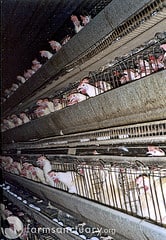
With regard to the welfare of the laying hens, cages have both advantages and disadvantages. While there are claims that keeping the birds somewhat separated from a huge flock, reduces fighting among the birds, there are arguments that state that caging the birds all the time creates deplorable conditions where diseased and sometimes dead birds are mixed in with live birds. There's also the inhumane treatment of the caged birds by debeaking - searing off their beaks or cutting them in a machine so that they don't peck and kill each other.
The modern egg farms are so automated now that with this system, they are able to process unseen number of eggs a day. You can see how chicken farm is far from the idyllic picture of hens roaming, and laying eggs in their coop at their own pace and will. Furthermore, who can forget this recent undercover video from Mercy for Animals of Hy-Line North America workers throwing live male chicks into the grinder, just because male chicks don't lay eggs and are not profitable since they grow too slow to sell them as poultry meat. That's destroying 50% of the chicks.
Cage-Free or Free-Roaming: These eggs are laid by birds that are not caged. But, "cage-free" does not mean that the birds are raised outdoors. Typically the birds are maintained on the floor of a poultry house. Often the packaging of "cage-free" eggs can mislead the consumer about the product they are purchasing. It is common to see designs on the egg cartons including chickens roaming free outdoors. This is not the case with "cage-free" eggs. The hens are still maintained indoors, just not in cages.
Free-range: These are the eggs from hens that are allowed to graze or roam outdoors. It is not necessary, however, for the hens to be outdoors all the time. In other words, the hens, housed in a poultry house that has access to the outdoors, have the ability to go outdoors during the day, although they can also choose to stay indoors. The flock is usually locked indoors at night to protect the hens from predators. There is no set standard on how much range must be available for the hens. This means, they can stay outside for five minutes or for five hours.
Pasture-raised: This is a modified "free-range" system. The birds remain on pasture all the time, but are confined within a portable pen. The pen is moved daily to give the birds access to fresh pasture. The portable pen usually has a portion covered to protect the hens from the elements.
Organic: To be certified organic, the eggs must be produced from hens that have been fed certified-organic feed which was produced without synthetic pesticides or herbicides, antibiotics, or genetically-modified crops. In addition, no synthetic pesticides can be used to control external and internal parasites. However, organic eggs can come from chickens that were given antibiotics in the event of an infection. Most commercial chickens are given antibiotics routinely, without an infection. Also, typically, organic eggs are also produced from hens in cage-free systems.
Fertile Eggs: Almost all eggs produced commercially are infertile. Roosters do not have to be present for hens to lay eggs and roosters are, therefore, not kept with laying flocks. When there is an excess of hatching eggs in the poultry meat industry, eggs from broiler breeder flocks can be sold for human consumption. A large percentage of these eggs will be fertile. Fertilized eggs are safe to eat. There is no nutritional difference between fertilized and unfertilized eggs. The embryo does not develop in fertilized eggs that are refrigerated soon after laying. (I have seen partially fertilized embryos in eggs before and it is not pleasant to look at)

So now do you see what my problem is? Once I started really caring about the labels slapped onto the egg cartons, (and actually reading them) I realized that there are dizzying array of ways that the eggs are produced. I thought about chickens we raised in our backyard in Korea. I don't remember why we raised them but only that they were like pets. We only had about ten in a large pen big enough for us to walk around in and give them their feeds. I remember collecting warm eggs, that they just laid, in a basket every day. I wish we can raise our own chickens again.
Do you know you can buy a White Leghorn, the most common egg laying hen, for less than two bucks? That's $2 for a indefinite number of fresh eggs!
Hmmm...I wonder what my Home Owners Association would say about clucking hens running around the yard?
Have you thought of raising your own hens? Do you know someone who does?



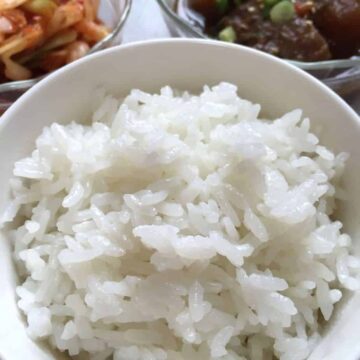
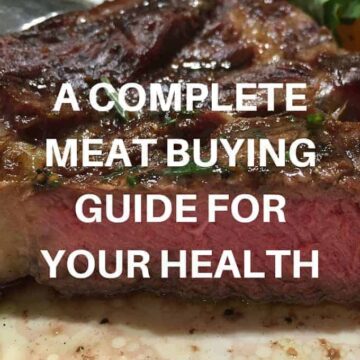
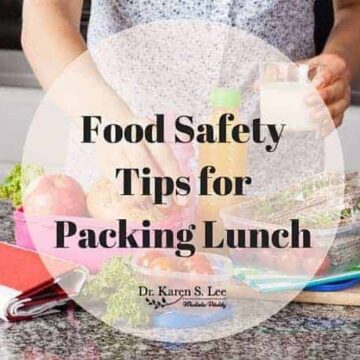
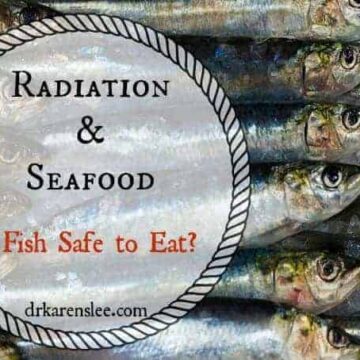
ecokaren says
that's what I buy...until spring when I can buy pastured eggs from the farmers market.
Vincent Lee says
Read the article. Since I can't raise chickens in my apt, is "organic" the best?
Karen says
A reader sent me an e-mail regarding Glaum and I wanted to share it with you.
" I have been buying Glaum eggs (Aptos CA) for several years now based on the certified humane and cage-free label only to find out that they meet the bare minimum standards for these water down "humane" labels. The Cornucopia institue, who support ecologically produced local, organic and authentic food, released an independent report that focuses on widespread abuses in organic egg production, primarily by large industrial agribusinesses. Glaum scored in the lowest range (poor) right there with Horizon and Egglands best. They are a fake! Buy Clover stornetta or organic valley, which scored very good. Check out http://www.cornucopia.org/. "
I knew about Cornucopia.org but didn't think they'd have this list but I just checked its website and apparently, out of 5 egg rating, Glaum received 1 rating. But that's not the only factory to receive that low pitiful rating.
What does that mean? According to Cornucopia's standards...
"“1-egg” rating (0-1200): “ethically deficient - industrial organics/no meaningful outdoor access and/or none were open enough to participate.” Brands with a “1-egg” rating are generally produced on industrial-scale egg operations that grant no meaningful outdoor ac- cess. “Outdoor access” on these operations generally means a covered concrete porch that is barely accessible to the chick- ens. Means of egress from the buildings are intentionally small to discourage birds from going outside, and make it possible for only a small percentage of birds to have “access” to the outdoors. No producers in this category were willing to participate in The Cornucopia Institute’s project, and none shared their production practices with Cornucopia researchers. This is disturb- ing to many organic consumers, since transparency has always been viewed as a hallmark of the organic food movement."
Gah~! Unfortunately, most popular brands like Sauder's, Land O'Lakes, Horizon, 365 Organic (Whole Foods brand), Trader Joe's, Kirkland, Meijer's , Price Chopper's, and my local supermarket brand, Nature's Promise (Stop and Shop) brands also received egg rating of 1.
Very disappointing.
Thank you Greg for pointing me towards Cornucopia for more detailed look on how specific factories are doing.
Louise says
Unfortunately the Cornicopia "institute" is not what they say they are. They are a for profit business that threatens farmers with harming their reputation (like they have done to Glaum) if they do not participate in their program. I have heard of these actions before, and I find it despicable. Farmers have to pay Cornicopia for the inspections, and they can not afford to pay all of these people. In the Glaum case, they are certified by Certified Humane. This is a well established professional organization and I suggest you look at their website and not just trust Cornicopia.
http://www.certifiedhumane.org/
nourishthespirit says
Hi Tyke,
Thank you for pointing me back to Glaum. I had emailed them before and not gotten a response. So I'd looked up their Humane label and spoken to someone at that organization, who told me chickens with this label can still be de-beaked. I just called and spoke with Debbie, and she confirmed they are not debeaked. But she could not tell me what happens to male chicks once they grow up. Are they processed in factory farms? It would be more honest of a reply if you explain you work for them. I'd appreciate you don't point fingers either, when this is a complex issue we're all trying to better understand. There's little company transparency going on at companies like Glaum on their site and with their employees, even if they mean well. Debbie couldn't even tell me what happens to the chickens or what space the barn they're kept in holds.
Thanks.
nourishthespirit says
I'm afraid Glaum's eggs are de-beaked. The Humane Society says most places do this in order to prevent chickens from killing each other in overcrowded conditions. Most male chicks are discarded too, what a horrible industry. I don't think those Glaum eggs or chickens are being kept in great conditions and doubt I'll be buying them.
I did a bunch of research and wrote about all this on my blog. I'm at a loss as to how to get better eggs. I may try some pastured ones at the farmer's market. Lately I'm using eggs less and less and drinking more green smoothies anyway.
Thanks.
Tyke Jones says
Actually NO, they are not de-beaked. That was my first question when I arrived at the farm. THere answer was, "we absolutely DO NOT DE-BEAK our chickens. PLEASE make sure your facts are correct. When I asked, they said their biggest issue is "hear say" So I am guessing your source is not good. In fact, you should not be posting anything on your blog with out going to the source. Regurgitating other peoples blogs or post is not research. Call or I recommend visiting the ranch. I have only been once while visiting friends in Santa Cruz, but it is a great area to spend the weekend, and you can check out Glaum and other great farms, creameries, beaches and breweries while you are there.
Lisa @Retro Housewife Goes Green says
Great post! Thankfully I don't have to deal with any of that because my eggs come from my mom's chickens. 🙂
Karen says
You are so lucky to have mom provide you with eggs! That is the best way. I am so jealous!
nourishthespirit says
What about humanely raised eggs? I have invested in Glaum eggs because they seem to carry this label as well - meaning they're not de-beaked, etc. That's important to me.
Karen says
I don't know much about Glaum Farm eggs. But if it's humanely raised and is certified as they seem to be, I guess that's better than from a factory farm. Without seeing the farm though, I wouldn't know how they are raised. But it's great to have many options when buying eggs. And if they are local, even better.
Tyke Jones says
I have been to Glaum Egg Ranch to purchase eggs and check out the farm. I have purchased tThey have strict bio hazard standards there, so you can't view the chickens, but they definitely maintain that their chickens health is their first priority. You can see some pictures of the chickens on their facebook page.
Lisa Tener says
I've been asking around my organic farmer's market to find out more about the eggs we buy. It's really sad. All the local farms except one have stopped using organic feed (and the one that's organic sells out on Block Island so you can only get them in the winter after tourist season).
Not only is organic feed very expensive--it's hard to get. The farmers say they just can't make any money with organic eggs (these are folks committed to organic in their vegetable farming). I asked further and it turns out the feed companies have all been bought up and consolidated, getting rid of organic feed but also pretty much ensuring that the feed is full of GMO corn.
So, even when buying local eggs from hens that walk the fields and eat grass and bugs, unfortunately, we are getting mostly GMO garbage. So sad and disturbing.
Karen says
You are right; even if chickens are fed organic feeds, the land they roam and live on have to be organic too. That's why organic eggs are soooo expensive. In order to produce organic eggs, they not only have to raise their chicken organic, they have to keep the area where the chickens roam organic....unless they are caged. But that's counterproductive, isn't it? It's definitely a complicated issue.
Auriette says
I see chickens roaming around near my mom's neighborhood in Pensacola, Florida, all the time. I'm kind of surprised that cats and dogs don't get them or that they don't get hit by cars, but there's always two or three out when we drive by.
On a sadder note, I don't understand how grinding up baby chicks is legal, when shooting a dog is illegal. A local man was charged with shooting dozens, if not hundreds of greyhounds from the racetrack. In some states, cockfighting is legal; other places it's not. If we have to execute violent murderers humanely, why shouldn't there be uniform laws protecting all animals from cruelty?
Another sad note, my husband saw a recall notice for frozen chicks that are being sold as food for snakes. What do you want to bet that those chicks were raised specifically to be snake food, while food industry chicks are thrown into grinders? Yes, the snakes have to eat, too, but it seems like these two industries need to get together.
Karen says
That is awful about killing all those innocent dogs. Is it because they weren't fast enough? Ugh. You are right. It is so weird how laws for animal cruelty is different in each state. But I bet animal cruelty laws that pertains to big industries like the poultry industry, laws are definitely not in favor of the animals.
Rachel says
me again-I just signed up to take a chicken keeper class for beginners given through Omlet web site http://www.omlet.us/courses/. our class is Aug 21st! fun! neat chicken houses on that site too.
Karen says
Heritage breed would be a much better idea. I was just so pickled when I saw how cheap the White Leghorns are!
I am so jealous that you can have chickens! Please let me know how you it turns out. I'm off to check out the website.
Rachel says
Karen-thanks for doing all this research and posting about it! We want to have 2 chickens next year! My brother has chickens for the first time this year and loves it. They eat all the grubs and dandelions out of the grass and fertilize it too! I think getting a heritage breed is very important instead of the standard white chicken breed.
Becky says
I have some friends who keep chickens, and they love it! I don't do the egg thing, but I think that either keeping your own chickens or getting to know a farmer you trust are the best bets for really humanely-raised eggs. Like you said, terms like free range and cage free don't mean as much as the should, unfortunately.
Karen says
When I visited Stone Barns Center for Foods and Agriculture (Dan Barber is the owner) last year, I bought a dozen eggs that were laid the day before. Yes, they were expensive but they were so fresh that I cracked a little hole on one side and another on the other side, and slurped the raw egg right out of the shell. I know it sounds disgusting (remember Rocky?) but when the egg is that fresh and raised with organic feeds and are not processed from a factory, you CAN eat it raw without worrying about Salmonella or E Coli. The chickens at Stone Barns are the real "free-roaming the fields chickens" and not just in a cage left out on a field.
nourishthespirit says
I can't wait to visit Stone Barns one day. How brave of you to have raw egg. Did the eggs generally taste much better so fresh?
thanks!
bululustudio says
wow Karen, that video is pretty sad. 🙁 ...I'm going to share it of my facebook.
Karen says
Share away. More people know, the better. We need to demand more humanely raised (and killed) animals for food...if that's at all possible. This video was of one of the reasons why I became a vegetarian recently